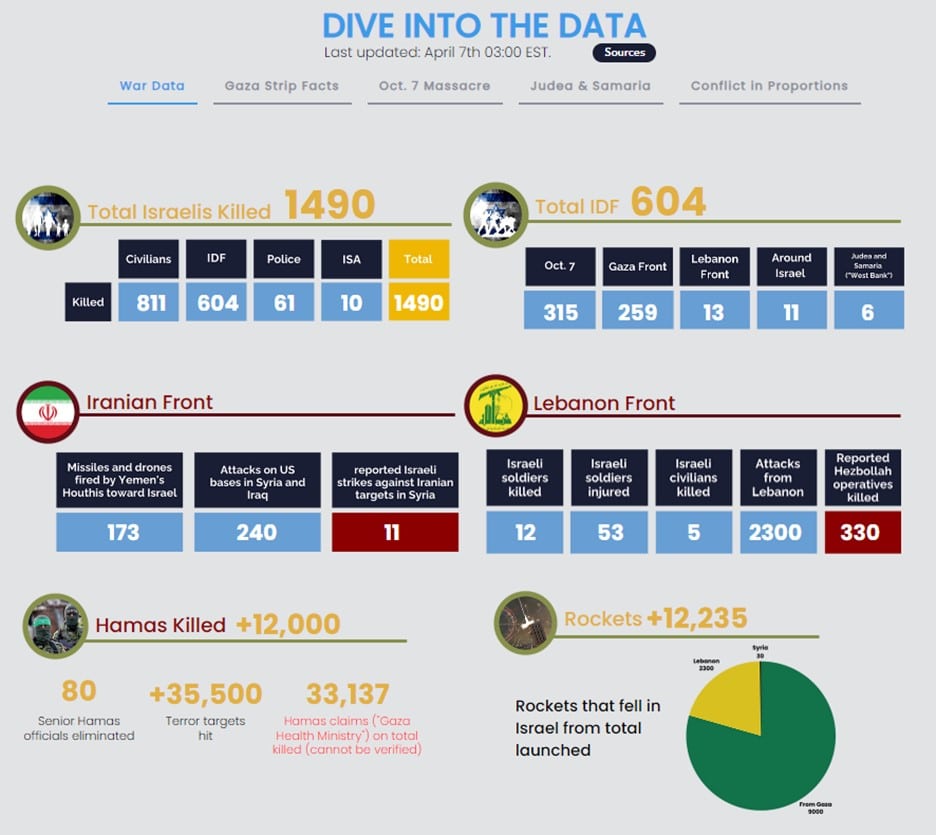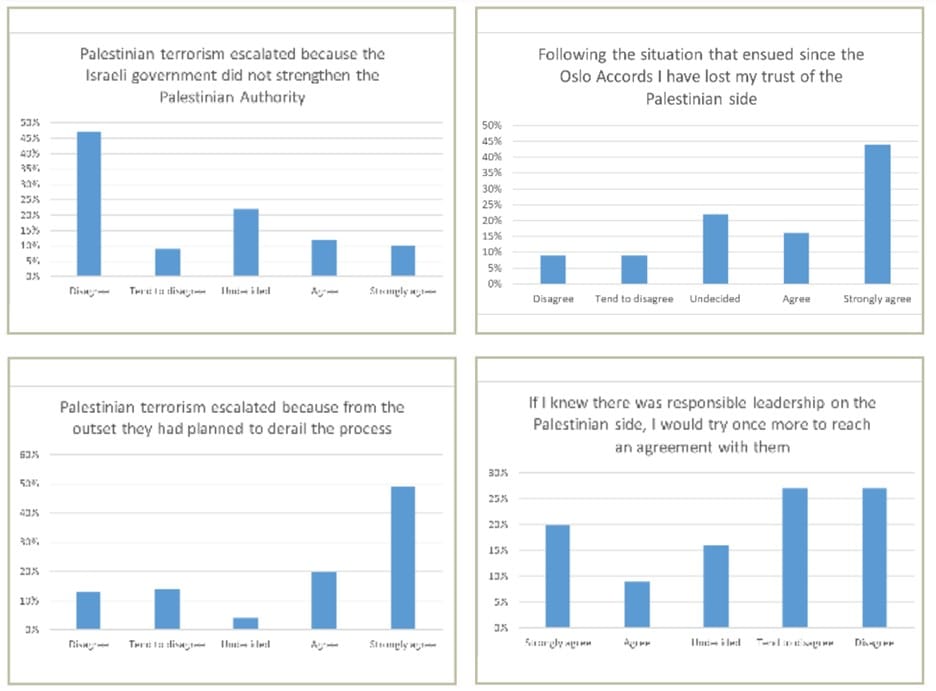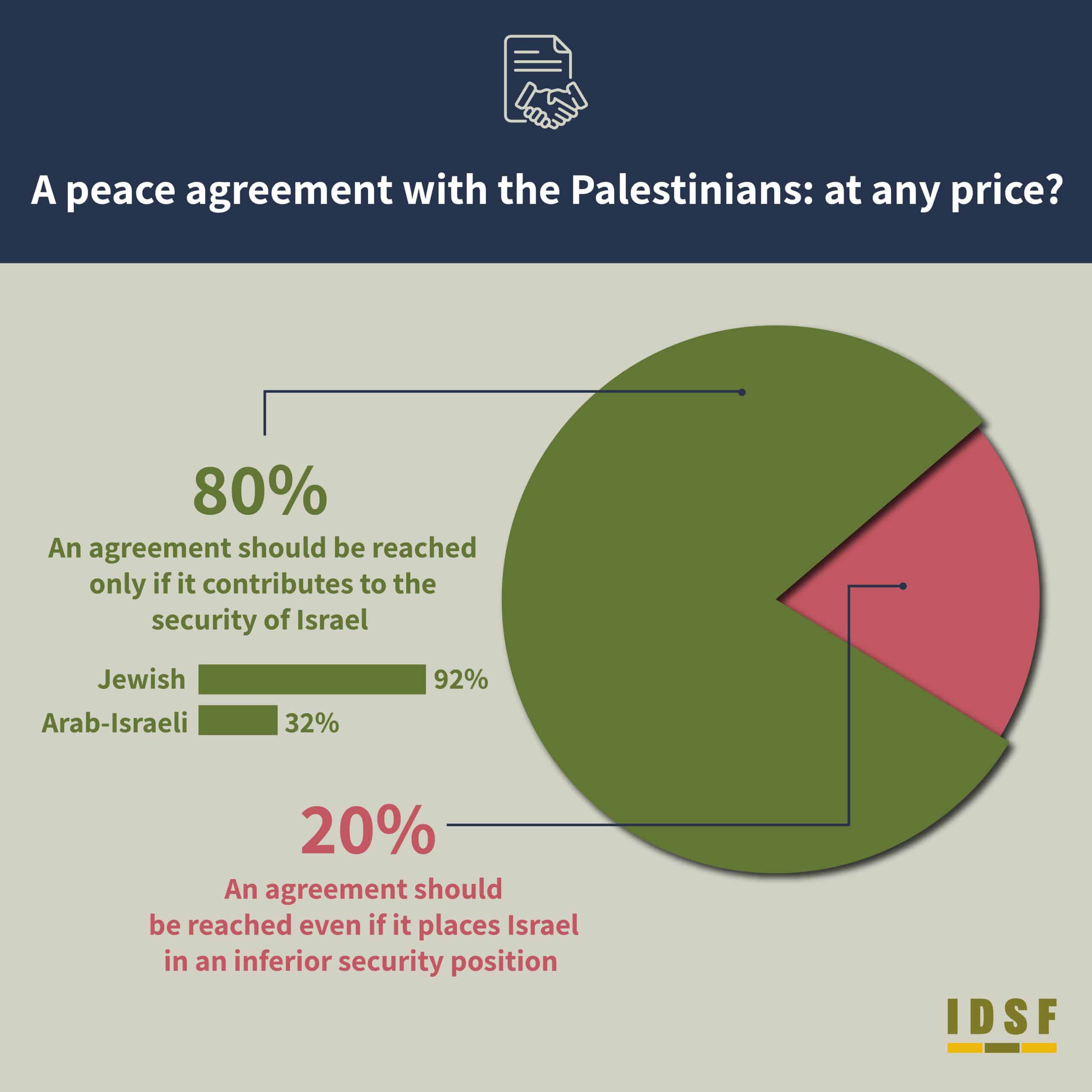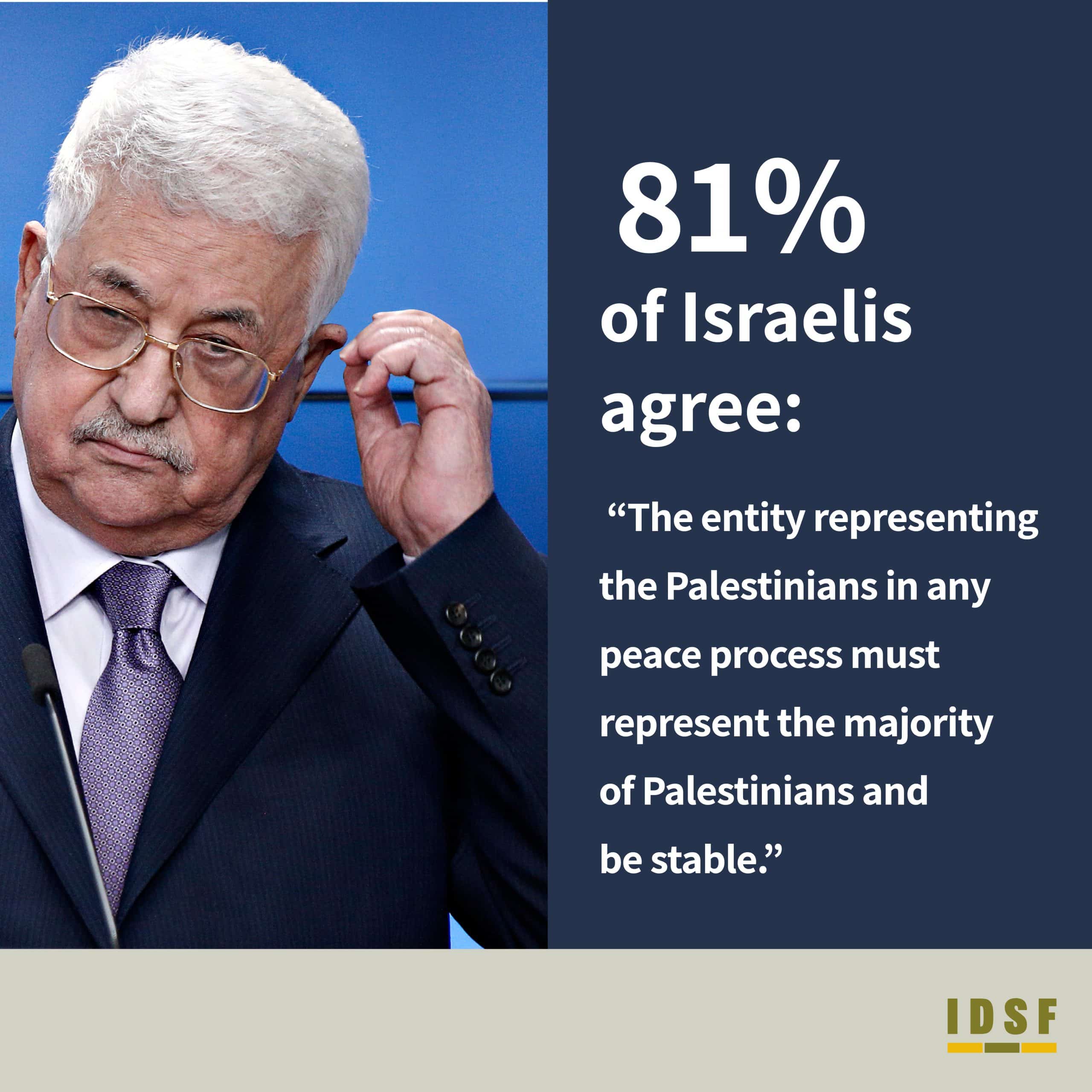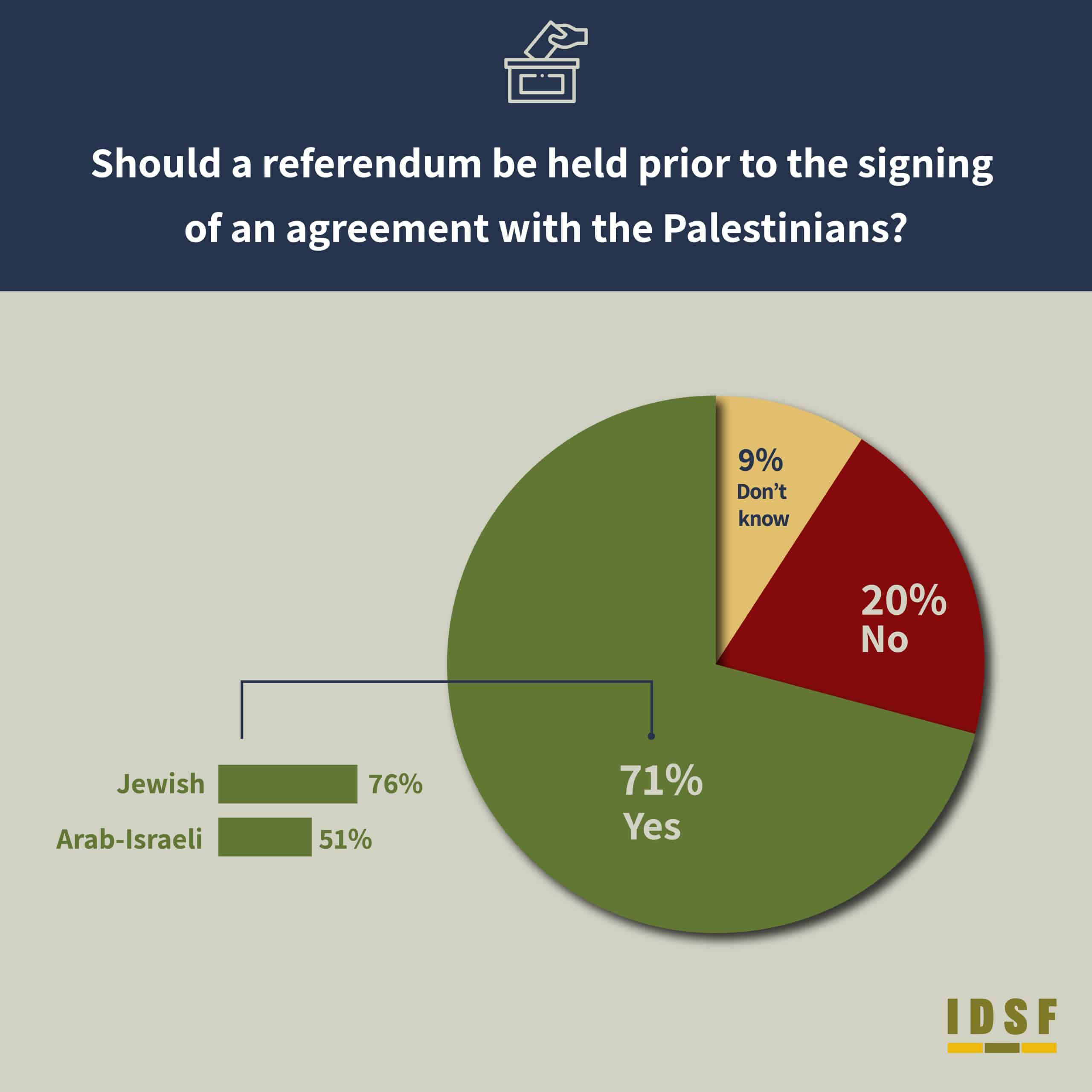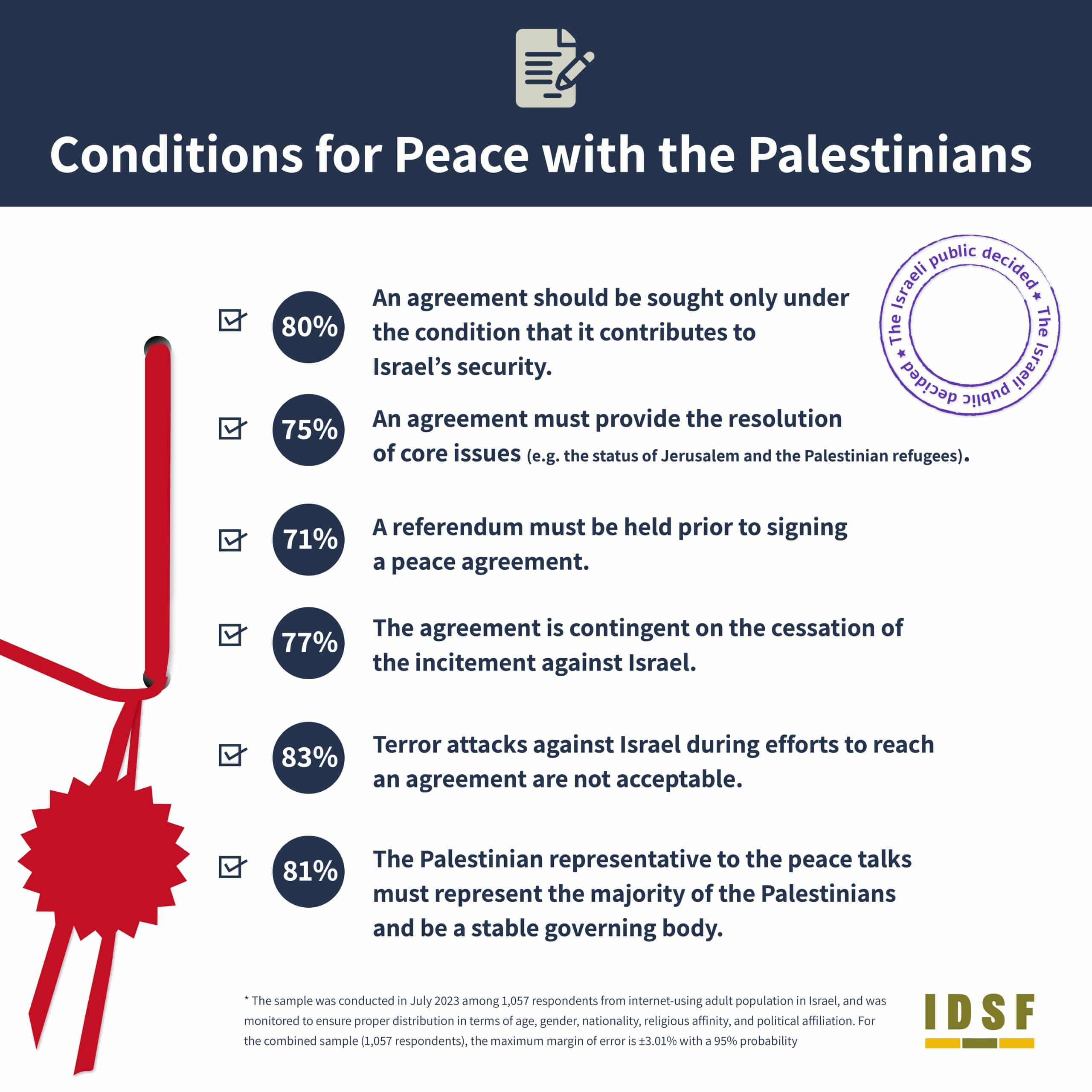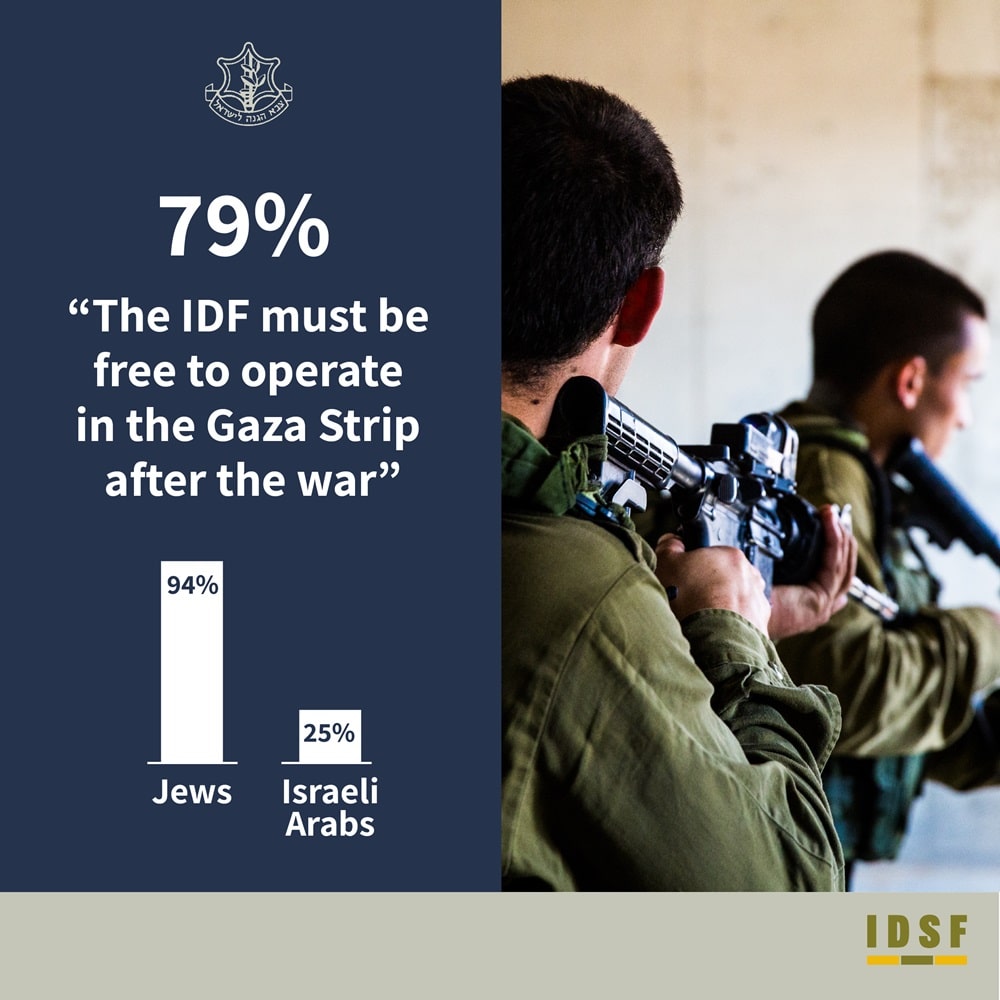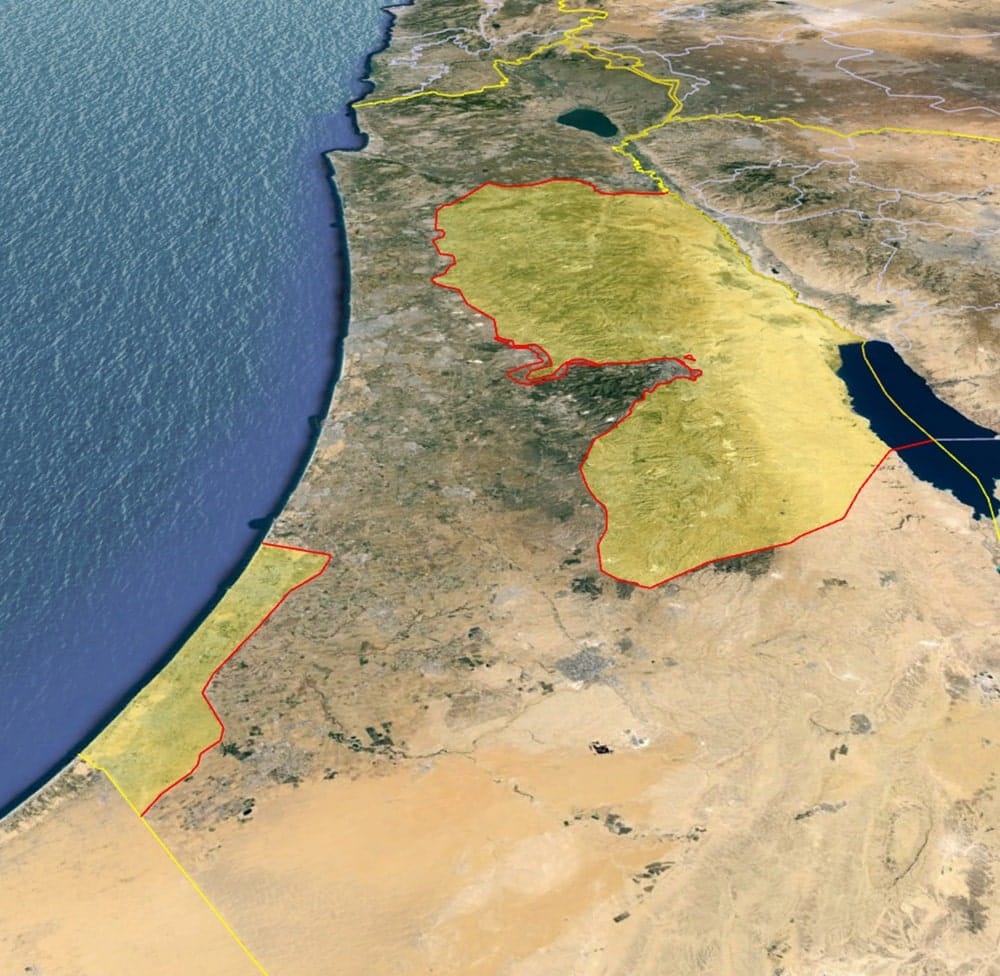
Recognizing a Palestinian state, especially at this point, after and as a result of the 7th of October heinous terror attack, will be counterproductive to the effort of ensuring peace and stability in the Middle East. It will, among other things:
- Incentivize terrorism against Israelis and Jews and endanger Israel’s security by proving its valuable outcome
- Legitimize the notion of a Hamas regime in Gaza or following a democratic election
- Reinforce a misunderstanding of the conflict by framing the 1967 as the core issue
- Disincentivize necessary reforms in the Palestinian Authority– recognizing a Palestinian state without requiring the many necessary reforms in Palestinian society and governance will undermine reforms in Palestinian society and make peace even less achievable.
- Offer no tangible achievement on the ground for Palestinians, since Israel will not make territorial or demographic concessions following a mere recognition. This will further frustrate and radicalize the Palestinians and expose the futility of the recognition in a fictitious and imaginary radical state.
- Send the wrong message to Russia, China, Iran, and extremist actors in the Middle East
- The only workable arrangement at this point must be a strong and secure Israel gradually coordinating with local Palestinian partners with international backing
IDSF-Habithonistim | June 26, 2024
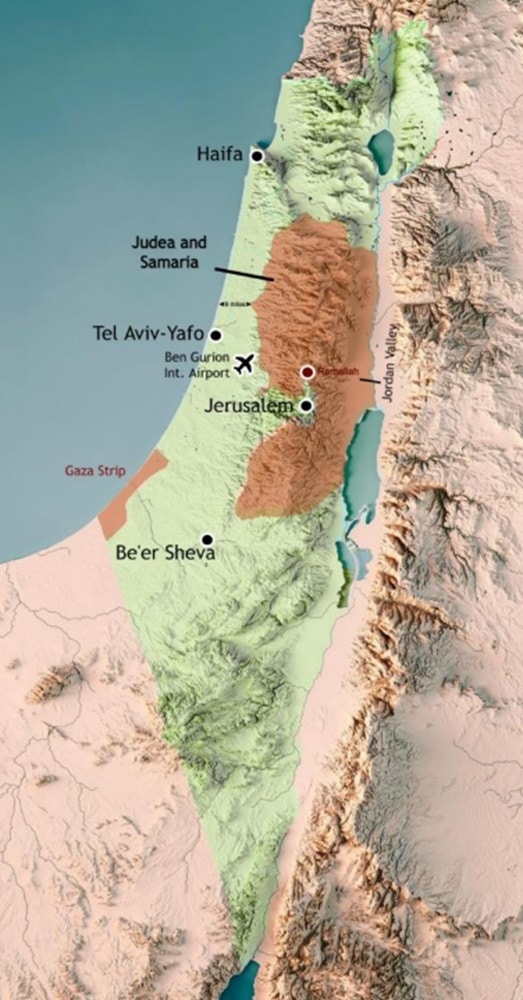
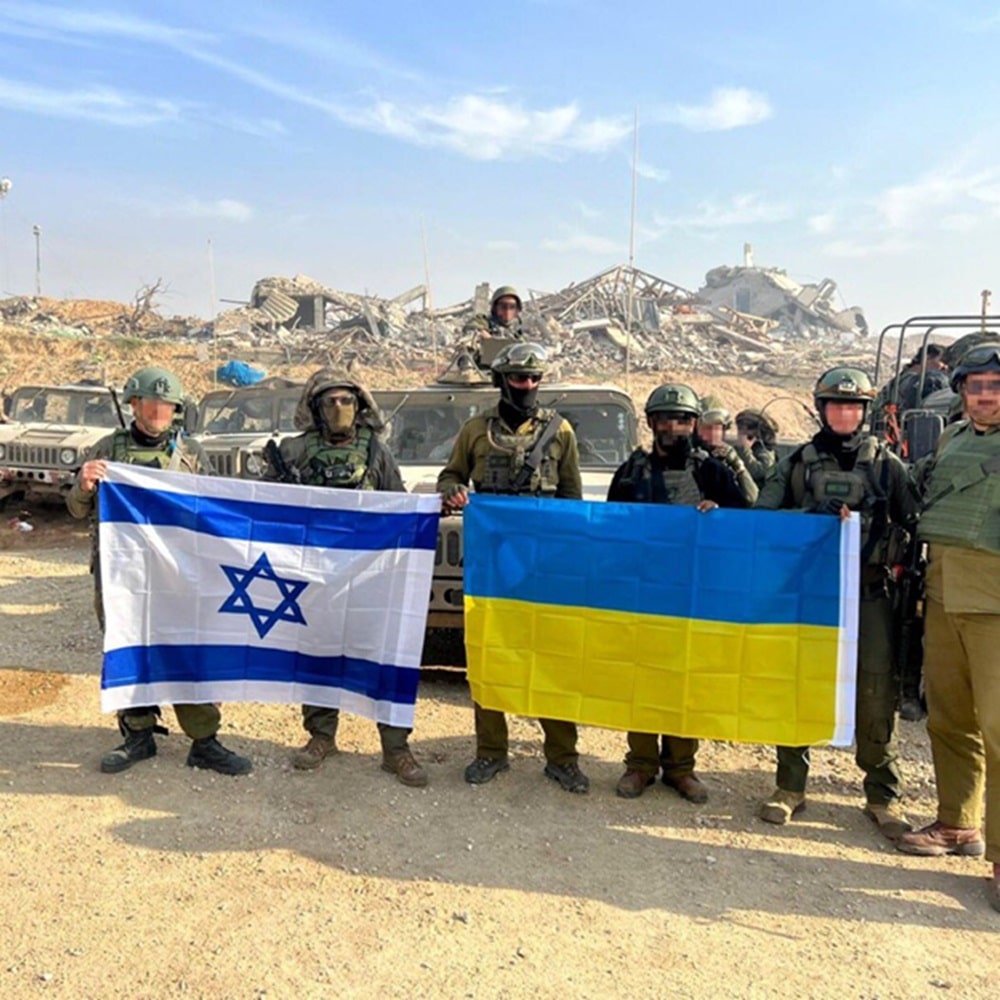
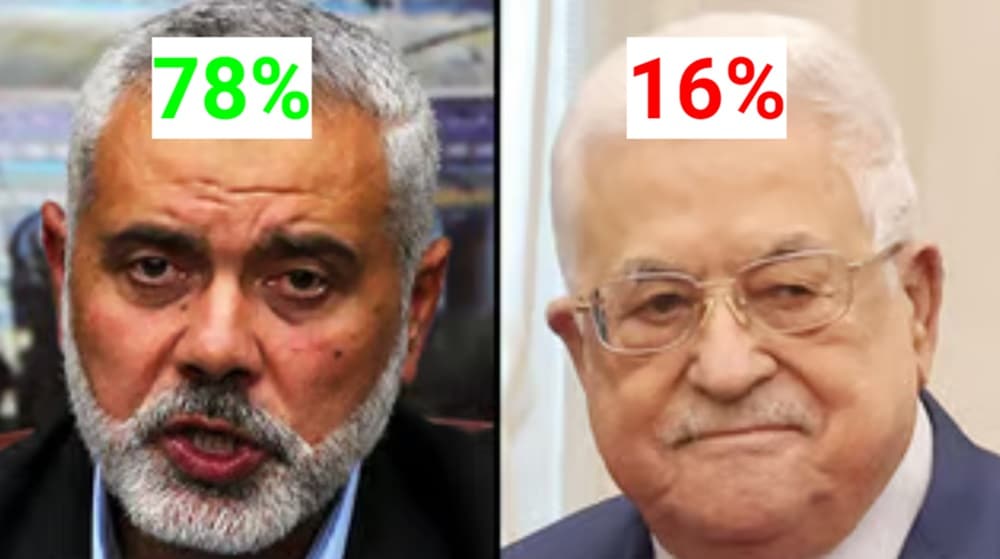
In the aftermath of the recognition of a Palestinian state by Spain, Norway, Ireland, Slovenia and Armenia, other European countries are contemplating such a move as well. As opposed to the clear EU policy which requires consensus-based foreign policy and defense-related decision-making, some EU countries have taken unilateral action, disregarding their partners in the EU, their ally Israel, and ignoring multiple elements in the complicated Israeli-Palestinian formula.
Reckless and rushed action of this sort will trigger the opposite of peace and security:
- Encouragement of aggression: It sends a clear signal to the Palestinians as well as other worldwide actors – most notably Iran, that terrorism and aggression bear fruit. The Western world is already struggling to restore its deterrence following Russia’s invasion of Ukraine, mounting terrorism threats in the homeland, and the sprouting of hostile regimes overtly threatening it such as Iran, Venezuela, and increasingly Turkey; it cannot risk demonstrating “political fatigue” by capitulating to their political demands, that will then trigger aggressive actors to ramp up their boldness. ISIS, Al Qaeda, and other rogue terrorist groups on European soil will also be invigorated by such a demonstration of weakness.
- No change on the ground: Recognizing a Palestinian state now will not achieve any practical change, and will likely create circumstances that will delay or damage the prospects of peace. Indeed, no change on the ground is expected following these theoretical symbolic and politically motivated moves. Israel will not retreat from Judea and Samaria, stop its just war in Gaza, nor divide Jerusalem following such a move, while creating false expectations that the conflict is on the verge of being resolved may frustrate and radicalize the Palestinians.
- Disincentivize necessary reforms in the Palestinian Authority– recognizing a Palestinian state without requiring the many necessary reforms in Palestinian society and governance will undermine reforms in Palestinian society and make peace even less achievable.
- Assuring a Hamas-controlled terrorist state following any election or lack thereof: The world simply cannot afford a Hamas terrorist state in the heart of the Middle East, threatening Israel’s very existence.
A Palestinian state that will be controlled by Hamas is the most likely governing scenario, regardless of whether there are elections in Gaza or not. The Palestinian Authority has not held presidential or parliamentary elections since 2006, largely because they understand that Hamas would win those elections. Polling since October 7 has only solidified that 18-year-old working assumption. But should they lose a future election, they will be able to swiftly take over the territory, much like it did in Gaza in 2006 when Hamas massacred and scared off the Fatah leadership in Gaza.
The Palestinian Authority is weak because of its own misdeeds, and will continue to be an illegitimate representation of the Palestinian public, unwilling and unable to tackle terrorism and grow the economy. Hamas will continue to metastasize in Gaza, expand in Judea and Samaria, threatening to overthrow the PA rule there, much like it almost succeeded in doing several times in the past. In fact, only Israeli assistance helped foil Hamas’ previous attempts to overthrow Mahmoud Abbas’ Fatah regime.
The Palestinian Authority continues to support terrorism, refuses to condemn the October 7 massacre, and some of its leaders even encouraged it and called for copycat attacks in Judea and Samaria. “Pay for Slay” laws are still in place, paying some €300 million EUR annually as financial reward to terrorists, including the Hamas Nukhba (special forces that led the October 7th attacks) terrorists; Chairman Mahmoud Abbas has refused to condemn the attacks; and Fatah touted its members’ participation in the attacks on its social media platforms.
In that sense, all present-day Palestinian actors, Fatah, Hamas, and others, do not constitute reliable and tenable partners for peace, have not demonstrated the ability to govern a state, and do not share the values of western democracies that respect the rule of law.
Read more on the PA’s political weakness and support of terrorism:
The Palestinian Authority’s Gradual Loss of Security Controls
Gaza 101: How Has Gaza Become a Hamas Stronghold?
The Day Post Abbas: Where Palestinians On Social Media Stand, a unique analysis that demonstrates Hamas’ unmatched popularity and Fatah’s weakness as demonstrated on social media and in the elections to Palestinian student associations
IDSF Research Department
Palestinian opinion polls | Source: PCPSR.org
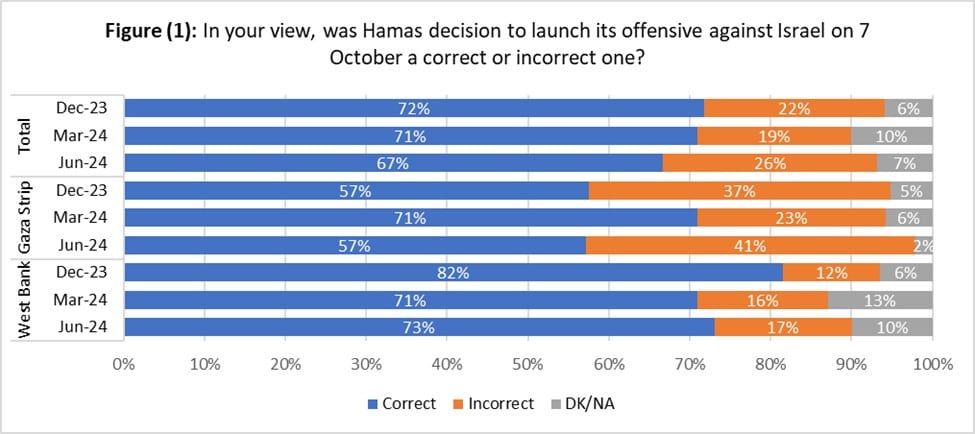
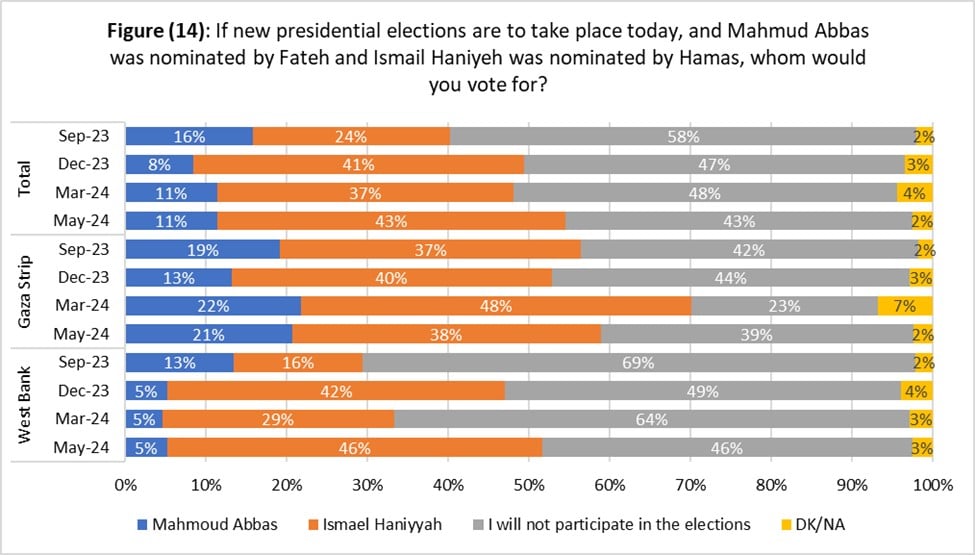
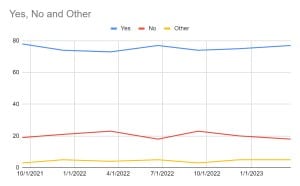
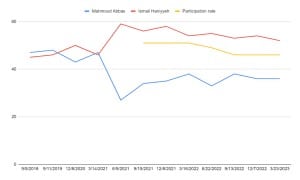
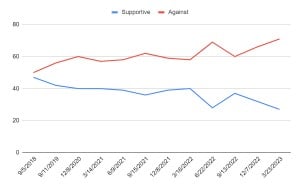
Compilation: IDSF Research Department
- Strengthening Iran’s axis of evil, thereby increasing the chances for regional conflict: Such a statement will boost the confidence of the radical Iran-Russia-China axis and Iran’s proxy network in the region, with the understanding that terrorism in its most brutal form is the most effective means to achieve political accomplishments, while at the same time, isolating Israel. Such a dynamic will increase the chances for a regional conflict and diminish the political leverage on Iran and Hezbollah.
- Hostages: Hamas’ political calculations will also be affected, hardening its positions and refusing any deal to release the remaining 120 hostages they are holding in Gaza, seriously hampering the political and martial efforts to return them home.
- As military professionals, we have concluded that a Palestinian state in Judea and Samaria is fundamentally incompatible with Israel’s national security:
- The Jordan Valley is an essential physical barrier that separates Israel from the tumultuous and historically hostile Middle East, blocking a free path from Tehran to the Tel Aviv metropolitan area;
- Topographically, the Judea and Samaria mountain range dominates the land of Israel, overlooking the totality of Israel’s strategic infrastructure (power plants, International Ben Gurion Airport, desalinization plants), vast majority of its population including the 2 million-strong Gush Dan (suburban Tel Aviv) area, all central highways (1, 2, 4, and 6), and creates a dangerously easy window for terrorists to target any civilians and infrastructure from this high-altitude terrain.
- Jerusalem cannot be divided again. During the 19 years that Jerusalem was divided from 1948-67, the Jordanians regularly used the territory to target Israelis forcing entire neighborhoods to be abandoned. Compelling Israel to surrender part of the Jewish people’s eternal capital will only encourage more nationalistic and religious inspired violence targeting Israel. Returning to a reality of fences inside Jerusalem will not be tolerated by the Israeli public and leadership.
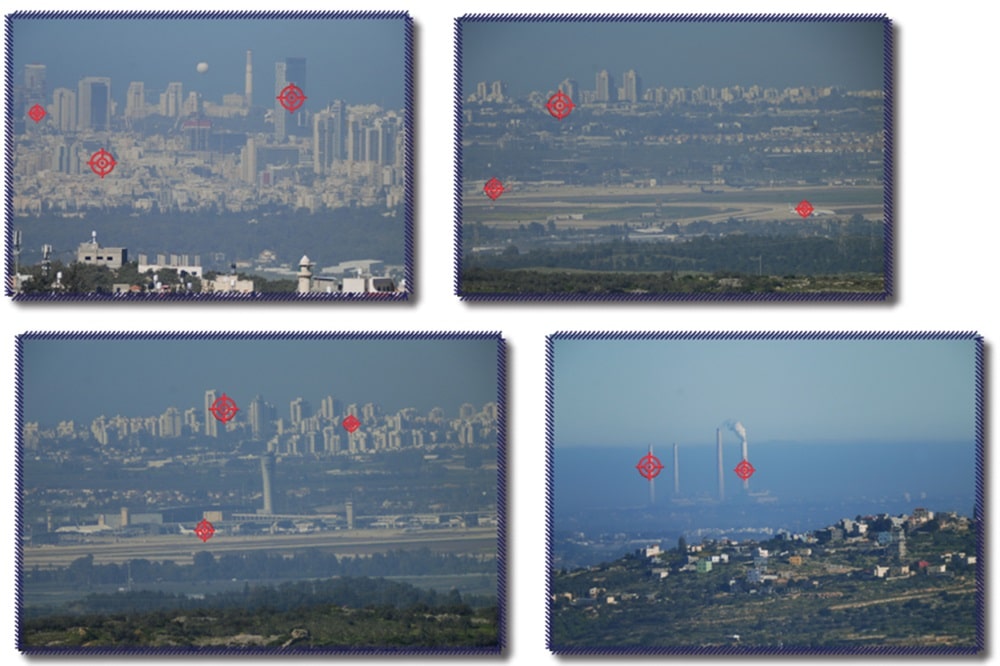
8. The IDF’s freedom of operation in Judea and Samaria has been the key factor that has blocked Hamas and secured Israel against terrorist plots, not the Palestinian Authority:
In the aftermath of the war, as confirmed by senior Israeli leadership and advocated for by IDSF for years, the IDF must restore its complete freedom of operation throughout the Gaza Strip unhindered, in order to prevent the Hamas threat from ever resurfacing again. Not only did the Palestinian Authority prove itself useless in countering terror attacks, it has been actively cheering them on. Additionally, Israel must keep control of the Philadelphi Corridor separating Gaza and Egypt’s Sinai Peninsula in order to prevent weapon smuggling into the Gaza Strip, an enterprise that allowed Hamas to arm itself undisturbed for years.
Europe will also have to give Israel the diplomatic leeway to respond with force to any attempt by Gazans (even civilians) to approach the border fence and to act in order to prevent any security threat, something that Israel was pressured not to do in the weeks and days leading up to October 7.
Throughout the years, and increasingly since the 1994 Oslo Accords with the Palestinian Authority and the 2005 disengagement from Gaza, Israel has made significant ‘sacrifices for peace,’ including steps that compromised its own security. When essential security needs arose, Israel preferred to rely on its assumed partner, the Palestinian Authority, to arrest ticking time bombs plotting deadly attacks against Israeli citizens. Unfortunately, the PA has proven almost useless in tackling these threats. Whether the PA has been unwilling or unable to assist Israel in providing meaningful security, Israel has had to defend its citizens by assuring the IDF, the freedom of movement all around Judea and Samaria (sometimes referred to as the “West Bank”), arresting terrorists daily with great risk to its soldiers and civilian Palestinians.
Since the 2002 Operation Defensive Shield, and more recently in Operation Break the Wave and the 2023 Operation House and Garden in Jenin, these precision counterterrorism raids have proven invaluable in keeping Israeli citizens safe. Between early 2023 and October 6, Israeli security forces had arrested over 1,400 terrorists and prevented more than 470 murderous attacks from throughout Judea and Samaria, including shooting attacks, suicide bombings, and kidnappings. Since October 7, Israeli security forces have arrested over 4,000 additional terrorists, half of whom were Hamas operatives plotting similar attacks.
However, these just and proportionate measures were the subject of heavy criticism on the part of the international community, including harsh condemnations by the UN General Assembly, issuing 22 condemnations of Israel in a single year, mistruths about “excessive use of force” and “possible extrajudicial killings” voiced by the EU special envoy to the Palestinian arena, and others.
No such arrests were possible in Gaza since 2005, allowing a deadly terror hub to flourish. The result, which unfolded in full display in the October 7 massacre, has demonstrated beyond a shadow of a doubt that there is no alternative to IDF presence on the ground as the only reliable safeguard to prevent terrorism from germinating.
- Normalization between Israeli and Saudi Arabia as key to ending the Israeli-Arab conflict: The Abraham Accords between Israel and four pragmatic Sunni states (UAE, Bahrain, Morocco and Sudan), with the blessing of Saudi Arabia, were only possible due to the intersection of interests between the most unlikely of partners: Israel and the Arab world found themselves on the same page facing a common threat from Iran. This was also possible thanks to Israel’s military might, in a region where the projection of hard power counts more than soft power.
To that end, the more decisively Israel wins in Gaza, the more likely that normalization between Israel and Saudi Arabia will take place, and in turn, with most of the Middle East and the Muslim world. Involvement by Arab parties in the future of the Gaza Strip should also be considered in that respect.
This provides an invaluable opportune moment to rally the West around the Middle East in a regional coalition led by the United States and the European Union, against Iran’s tyranny and extremism. The West must tackle the “head of the snake” head-on and target the Iranian regime’s malign destabilization efforts in the region, that will undoubtedly spillover to the rest of the world, as manifested today by Iran’s attempts to carry out terrorist attacks on European and American soil, and operate vast networks of narcoterrorism and human smuggling.
This will also moderate Russia and China’s influence in the region and push the Middle East towards the West and away from the Russia-China axis, and usher in an era of regional prosperity based on free trade routes that strengthen the global supply chain through the Indian-Persian Gulf-Saudi Arabia-Israel corridor and contribute to regional peace and stability.
- The Israeli=Arab conflict will not end by establishing a Palestinian state based on the ‘1967 borders’ (in reality, the 1949 cease-fire lines): A common misperception among the international community is that an Israeli retreat to the 1967 lines, that will require evacuating half a million Israelis, dividing Jerusalem, and leaving the country exposed to terrorist attacks, will resolve the conflict.
There is no evidence to suggest the Palestinians will find the 1967 borders satisfactory. Had it been the case, Israel would not have been at war beforehand.
The Palestinian slogan “From the River to the Sea, Palestine will be Free,” countless declarations by both Hamas and Fatah; and the logos and covenants of both Hamas and Fatah leave no room for doubt: the Palestinian narrative aspires to replace the entirety of the state of Israel with a Palestinian state, rather than live side by side with it.
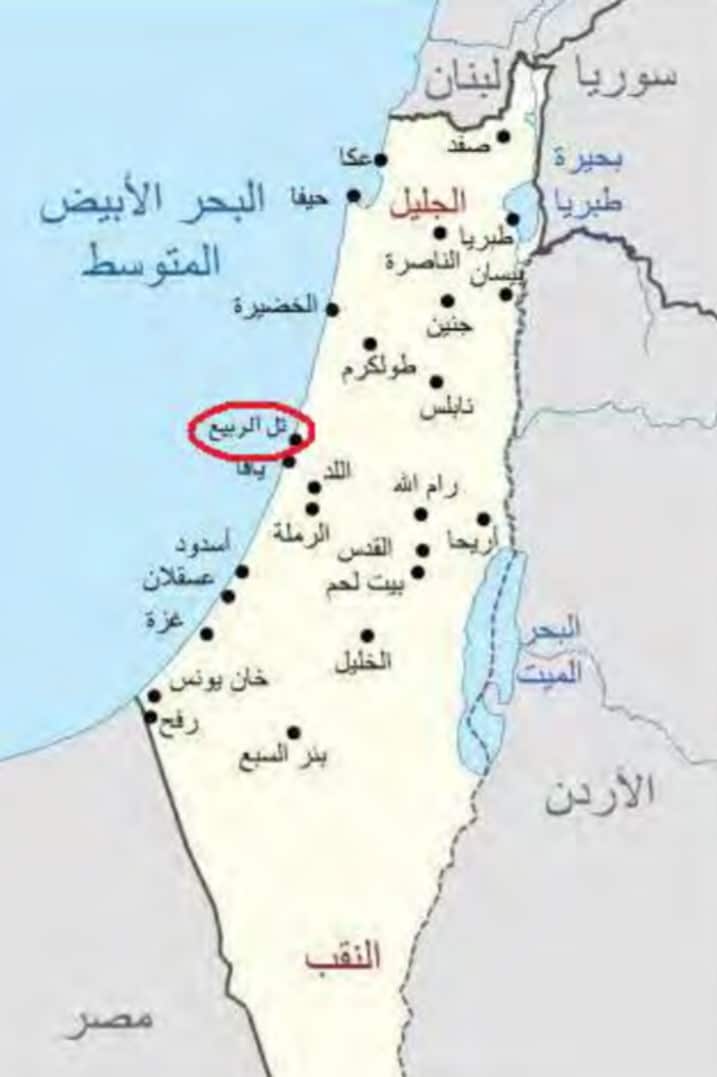
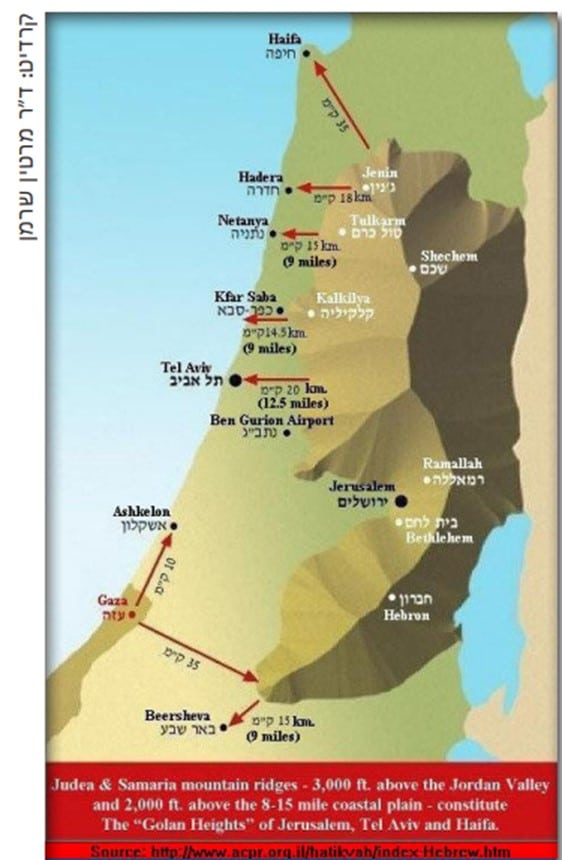

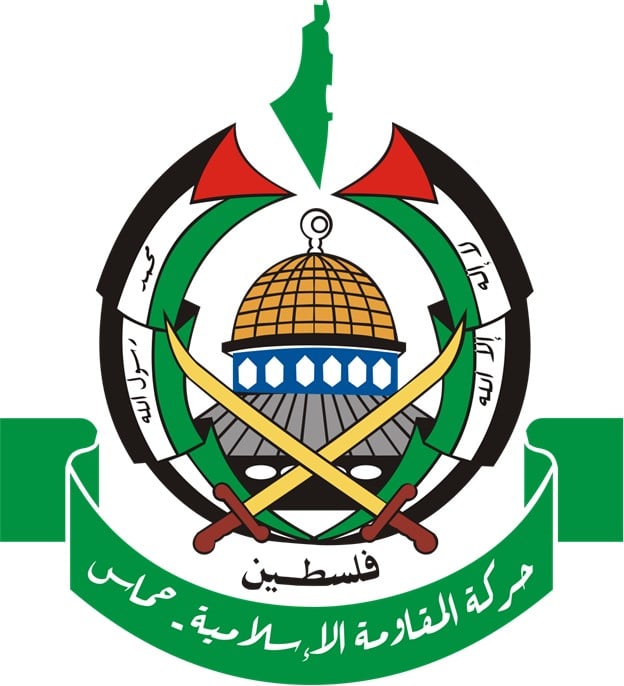
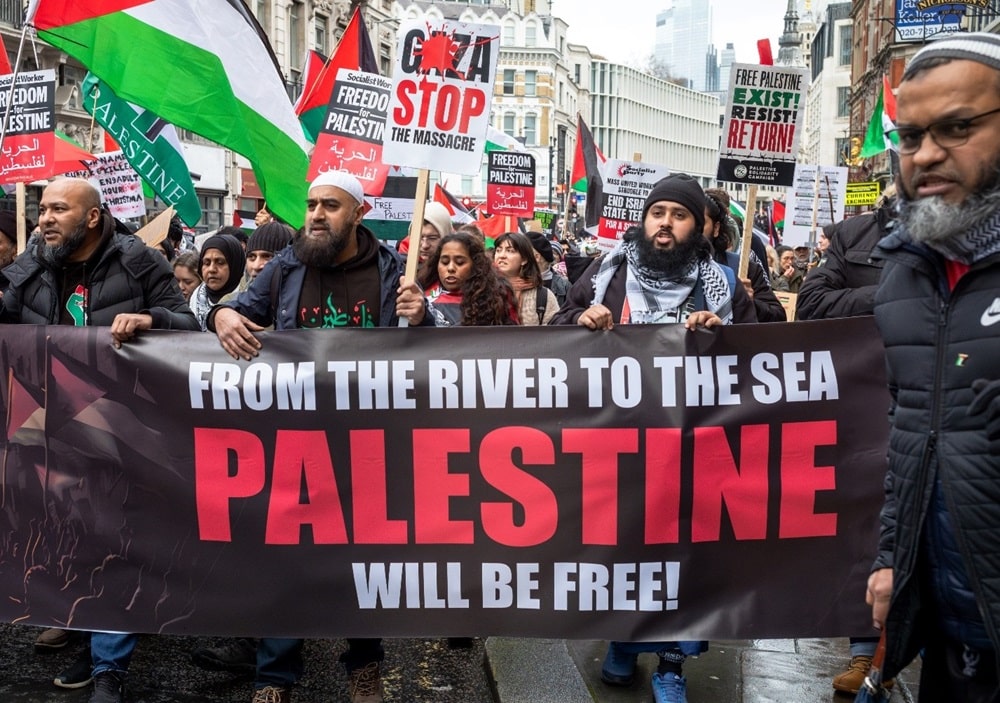
- The optics of such a statement cannot be more inconsiderate – giving a prize to terrorism at the expense of the attacked Jewish state: On the moral level, Western countries chose to have Israel’s back, yet it is becoming clear that domestic pressure and a tradition of imposing international resolutions on Israel has been taking over the discourse. Israel, the only Jewish country in the world, and the Jewish people, have suffered the worst attack in the country’s history. As a liberal, democratic, and peace-seeking nation, seeking an imposed “solution” that will pave the path to many more such ‘October 7’ attacks, recognition is ill-advised and will be viewed as a prize to aggression, human rights violations, violence, and terrorism.
- Indication that Western democracies act under pressure of an election season: Given the upcoming election season in the United States, and the Biden administration’s desire to generate a political achievement in Gaza and the Middle East and gather an international coalition to that end, it would be appropriate not to deliver a message of pressure, but only make such dramatic decisions following clear and in-depth discussion with the parties.
- Bypassing Israeli democracy will be ill-viewed by the public: Being a democratic country, the Israeli public is flatly rejecting the notion of a Palestinian state, and even more opposed to unilateral recognition in such imaginary state by Western counrtries especially in the aftermath of October 7. Since the 1990s, when a majority of the public was willing to make “painful concessions for peace,” including the 1993-1995 Oslo Accords as well as the 2005 Disengagement from Gaza, support for security compromises has sharply declined. Moreover, many Israelis who traditionally vote for Left or Centrist parties have switched to flatly rejecting the notion of a reward for terrorism in the form of a Palestinian state. This will alienate the Israeli public and strengthen its already well-based impression that the international community is “throwing them under the bus” in favor seemingly-easy plans at its expense.
30 Years After the Oslo Accords, Col. (res) Ronen Itsik, IDSF Research Department
IDSF Index, September 23, 2023
Prior to the October 7 attack, 69% of Israelis opposed the establishment of another Palestinian state beyond the one in Gaza. This opposition surged to 79% in the aftermath of the attack.
Jerusalem Center for Public Affairs, June 2024
The Path Forward
Instead of recognizing a Palestinian state, which will result in no change on the ground, incentivize terrorism as a means of achieving political goals, deliver a message to Israel and Jewish communities in Europe that the West is turning its back on them, and send the wrong signal to aggressive regional and global actors, we propose the following measures:
- Postpone any such decision to the aftermath of the war, and meanwhile support Israel’s right to defend itself and uproot Hamas as a governing and military entity in Gaza.
- Use the outcome of the war, and a possible Israel-Saudi normalization that will emerge as a result, as leverage on Palestinians not to miss out on the opportunities of Middle East normalization.
- Demand the PA to meet your criteria for good governance and rejection of terrorism: Demand from the Palestinians to stop incitement, payments by law of salaries to terrorists and their families, and accept Israel as the state of the Jewish people.
The US and many European countries have insisted that the Gaza Strip should be ruled by a ‘reformed Palestinian Authority,’ despite the clear evidence that the PA has a comparable ideology and goals as Hamas. The US and Europe have been critical of Israel for not being more explicit on the IDF’s plans in Gaza for the Day after Hamas, yet they have both refused to list any roadmap of what a “Reformed Palestinian Authority” should look like and how that could lead to peace.
While IDSF challenges the premise that the creation of a Palestinian State is the desired outcome from the war and that it could lead to peace, IDSF does want to suggest criteria for what the international community should mean when they refer to a “reformed Palestinian Authority”
A reformed Palestinian Authority that:
- Pays the Israeli victims of Palestinian terror, not the Palestinian perpetrators of terrorism | Learn more about the PA’s “Pay for Slay” terrorist financing laws: https://idsf.org.il/en/papers/terrorists-in-the-civil-service/
- Accepts the International Holocaust Remembrance Alliance (IHRA) definition of anti-Semitism
- Includes Holocaust education in their official education curricula, invites survivors to speak at schools and in public
- Includes Jewish awareness/sensitivity training
- Makes it clear that Jews would be welcome to live in a future Palestinian state (it would be outrageous for the world to legitimize a country that is at its outset, discriminatory to Jews)
- Protect, cherish, and make available to Jewish pilgrims,’ sites that are considered significant Jewish heritage sites
- It should be made clear that the phrase “From the River to the Sea” should be recognized as incitement for genocide and should be made illegal to chant in public
- Ceases all lawfare attacks against Israel
- Ceases all efforts to delegitimize the State of Israel
- Bans any Palestinian logos that show the map of Israel as part of the Palestinian state
- Partners with the IDF to provide security. Palestinian Security forces must arrest all terror cells, confiscate weapons and military infrastructure and prevent weapons smuggling. It should not rely on Israeli forces to do the dangerous ‘dirty’ work, but it must do the work, be effective and make it clear to Palestinian society that this type of behavior will not be tolerated
This is the type of reformed Palestinian Authority that one could imagine working towards achieving peace and resolving the Israeli-Palestinian conflict. Anything else, would definitively lead to the creation of a Palestinian State which would pose a significant danger to Israel and would be inconsistent with European values.
- Encourage grassroot civilian initiatives, including local experts, and study options for local leadership that can replace the corrupt, ineffective, and terror-sponsoring PA and terrorist group Hamas.
The international community needs to move away from the goal of creating a Palestinian state which may or may not lead to peace, and instead, transition to the goal of achieving peace, which may or may not lead to the creation of a Palestinian State.
